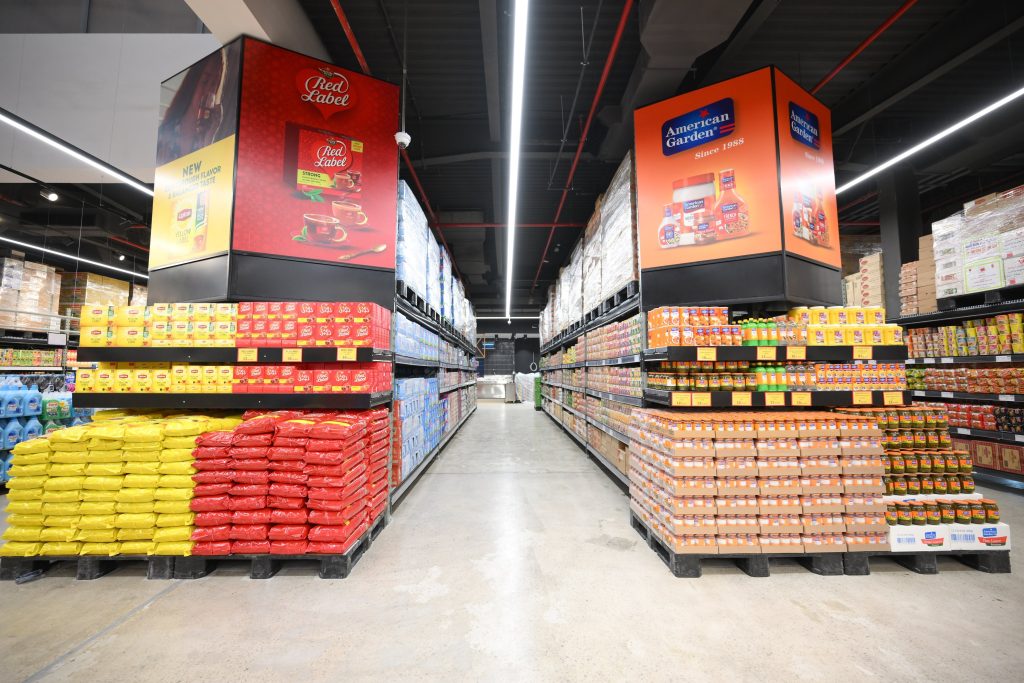In the competitive world of restaurants, profit margins are notoriously slim, with many establishments operating on just a few percentage points of profit. For restaurateurs, finding ways to cut costs without sacrificing quality is crucial to long-term success. One of the most effective strategies for achieving this balance is through wholesale buying. By purchasing ingredients, supplies, and even equipment in bulk, restaurants can significantly reduce their costs, streamline operations, and ultimately boost their profit margins.
This blog will explore the various ways wholesale buying can help restaurants increase their profits. From cost savings to improved efficiency, we’ll delve into why this strategy is a game-changer for the restaurant industry.
1. Significant Cost Savings
One of the most obvious and immediate benefits of wholesale buying is the cost savings. When restaurants purchase ingredients and supplies in bulk, they often receive substantial discounts compared to buying in smaller quantities. This is because wholesalers typically sell products at lower prices due to the economies of scale they enjoy from buying and selling in large volumes.
For example, purchasing non-perishable items like canned goods, spices, and dry ingredients in bulk can save restaurants a significant amount of money. These savings directly impact the restaurant’s bottom line, allowing them to increase their profit margins without raising menu prices.
In addition to food items, wholesale buying can also extend to other essentials like cleaning supplies, paper products, and kitchen equipment. By sourcing these items from wholesalers, restaurants can reduce their overall operating costs, freeing up more resources to invest in other areas of the business.
2. Enhanced Inventory Management
Wholesale buying not only helps reduce costs but also improves inventory management. When restaurants purchase in bulk, they can better manage their stock levels, ensuring they have enough ingredients and supplies on hand to meet customer demand without overstocking.Overstocking can lead to waste, especially with perishable items. By buying in bulk and managing inventory efficiently, restaurants can minimize waste and reduce the risk of running out of key ingredients during peak times. This not only saves money but also helps maintain consistent menu offerings, which is crucial for customer satisfaction.
Additionally, having a reliable wholesale supplier means restaurants can place orders as needed, knowing they’ll receive consistent quality and quantities. This consistency helps in planning menus, pricing, and managing food costs effectively, all of which contribute to improved profit margins.
3. Quality Control and Consistency
Maintaining consistent quality is essential for any restaurant aiming to build a loyal customer base. Wholesale buying offers restaurants the ability to source ingredients and supplies from trusted suppliers, ensuring consistent quality across the board.
When restaurants partner with reputable wholesalers, they can establish long-term relationships that lead to better product quality and reliability. These wholesalers often offer premium products at competitive prices, allowing restaurants to maintain high standards without breaking the bank.Consistency in quality also extends to the customer experience. When a restaurant can consistently deliver dishes that meet or exceed customer expectations, it builds trust and encourages repeat business. This repeat business is key to increasing profit margins, as loyal customers are more likely to return and recommend the restaurant to others.
4. Streamlined Operations
Efficiency is a critical factor in the success of any restaurant. By purchasing through wholesale channels, restaurants can streamline their operations, saving time and reducing the complexity of managing multiple suppliers.With wholesale buying, restaurants can consolidate their purchasing, reducing the number of deliveries and invoices they need to manage. This simplification of the supply chain allows restaurant managers to focus on other important aspects of the business, such as improving customer service or refining the menu.Moreover, wholesale buying often includes delivery services, meaning restaurants don’t have to worry about the logistics of transporting large quantities of goods. This convenience allows restaurant staff to focus on their core tasks, leading to smoother operations and, ultimately, increased profitability.
5. Better Negotiation Power
Wholesale buying gives restaurants greater leverage when negotiating prices and terms with suppliers. Because they are purchasing in larger quantities, restaurants can often negotiate better deals, including lower prices, flexible payment terms, and additional perks like free delivery or bulk discounts.These negotiations can significantly impact a restaurant’s profit margins. For example, securing a lower price on a staple ingredient like flour or oil can lead to substantial savings over time, especially for high-volume restaurants. These savings can then be reinvested into the business or passed on to customers in the form of more competitive pricing.
Additionally, the ability to negotiate with wholesalers can lead to customized solutions that meet the specific needs of the restaurant. This could include tailored delivery schedules, special packaging, or exclusive product offerings, all of which can give a restaurant a competitive edge in the market.
6. Access to a Wide Range of Products

Wholesalers typically offer a vast range of products, from basic ingredients to specialty items. This variety allows restaurants to experiment with new dishes, update their menus regularly, and cater to diverse customer preferences.
For example, a restaurant that wants to introduce a new menu item can easily source the necessary ingredients from a wholesaler without having to rely on multiple suppliers. This access to a wide range of products can also help restaurants stay ahead of culinary trends, offering innovative dishes that attract customers and drive sales.Furthermore, wholesalers often provide exclusive products or brands that are not available through regular retail channels. By offering unique or premium items, restaurants can differentiate themselves from competitors, attract a broader customer base, and justify higher prices, all of which contribute to higher profit margins.
7. Improved Cash Flow Management
Managing cash flow is a constant challenge for restaurants, particularly those with seasonal fluctuations in business. Wholesale buying can help alleviate some of these challenges by offering more predictable and manageable costs.When restaurants purchase in bulk, they can better anticipate their expenses, allowing for more accurate budgeting and financial planning. This predictability is especially beneficial during slower periods when managing cash flow is critical to staying afloat.Some wholesalers also offer financing options or extended payment terms, giving restaurants more flexibility in managing their cash flow. This flexibility can be a lifesaver for restaurants facing unexpected expenses or temporary cash shortfalls, allowing them to continue operating smoothly without compromising on quality or service.
8. Sustainability and Ethical Sourcing
In today’s market, consumers are increasingly concerned about sustainability and the ethical sourcing of the products they consume. Restaurants that can demonstrate a commitment to these values are more likely to attract and retain customers.
Wholesale buying can play a significant role in supporting sustainability efforts. Many wholesalers offer products that are sustainably sourced, organic, or fair-trade certified. By purchasing these products in bulk, restaurants can reduce their environmental impact while also appealing to eco-conscious consumers.Moreover, buying in bulk reduces packaging waste, which is another important aspect of sustainability. Restaurants that prioritize sustainability not only contribute to a healthier planet but also enhance their brand reputation, attracting customers who are willing to pay a premium for ethically sourced and environmentally friendly products.
9. Scalability for Growing Businesses
As restaurants grow, their needs evolve. Wholesale buying offers the scalability needed to support this growth, allowing restaurants to expand their operations without facing supply chain constraints.
Whether a restaurant is opening a new location, expanding its menu, or increasing its customer base, wholesale buying provides the flexibility to scale up quickly and efficiently. Wholesalers can often accommodate larger orders and offer more competitive pricing as the restaurant’s volume increases.This scalability is particularly important for franchises or restaurant chains, where consistency across multiple locations is key to maintaining brand integrity. By partnering with a reliable wholesaler, restaurants can ensure that all locations receive the same quality products at the same prices, contributing to consistent profit margins across the board.
10. Building Strong Supplier Relationships
Finally, wholesale buying allows restaurants to build strong, long-term relationships with their suppliers. These relationships can lead to numerous benefits, including better prices, priority service, and access to exclusive products.When a restaurant consistently purchases from a single wholesaler, it can develop a partnership that goes beyond mere transactions. This partnership can result in personalized service, such as custom product recommendations, early access to new items, or even support with menu development.Strong supplier relationships also mean that restaurants can rely on their wholesalers in times of need, such as during supply chain disruptions or unexpected demand spikes. This reliability ensures that restaurants can continue operating smoothly, even in challenging circumstances, protecting their profit margins and reputation.
Conclusion
Wholesale buying is a powerful strategy that can help restaurants increase their profit margins by reducing costs, improving efficiency, and ensuring consistent quality. From significant cost savings to better inventory management and enhanced supplier relationships, the benefits of wholesale buying are numerous and impactful.
By embracing wholesale buying, restaurants can not only boost their profitability but also position themselves for long-term success in a highly competitive industry. Whether you’re a small independent restaurant or a growing chain, the advantages of wholesale buying are clear: it’s a smart, sustainable way to manage costs, improve operations, and ultimately, increase your bottom line.
